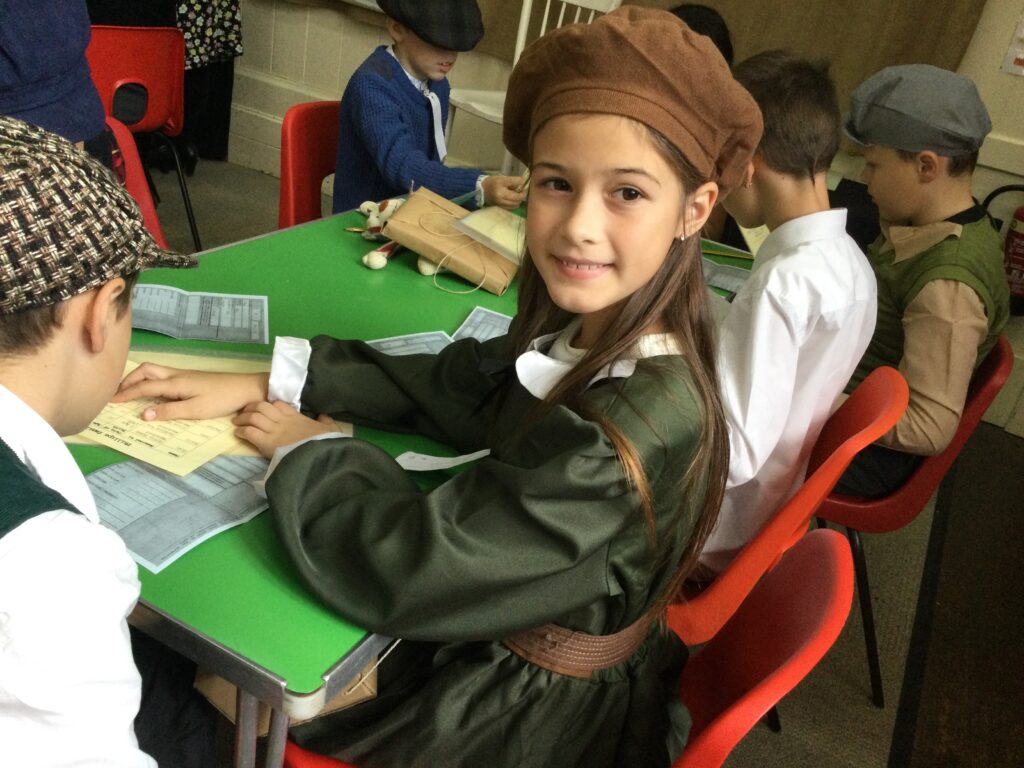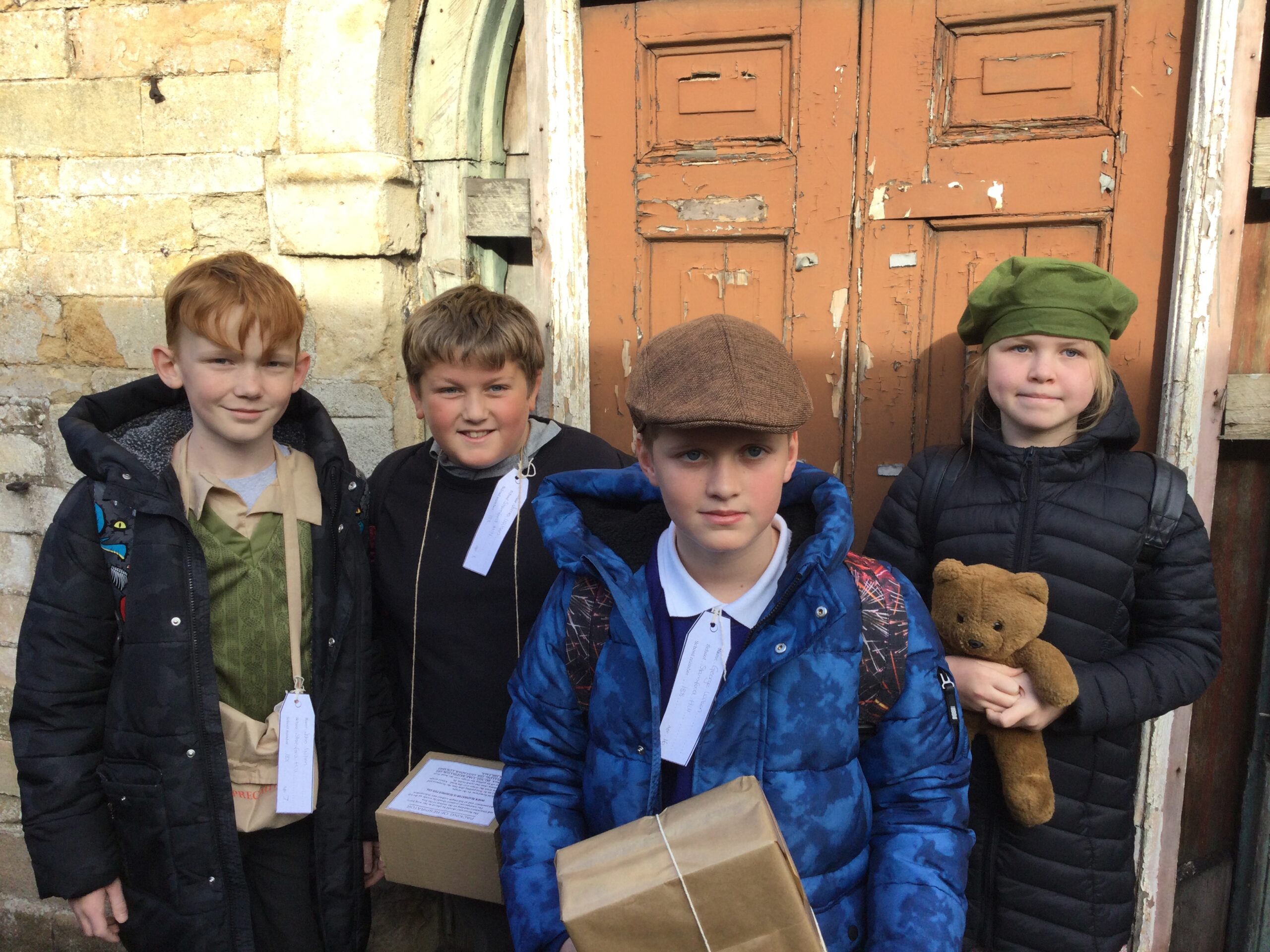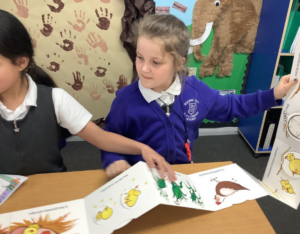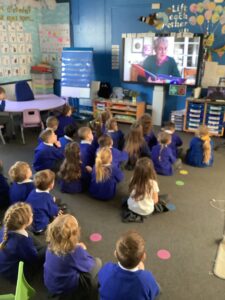Bourne Abbey Year 6 pupils take to Stibbington!
Keep smiling through…
On Wednesday 12th and Friday 14th Year 6 visited Stibbington as part of their WW2 topic.
The visit was an immersive experience from start to finish, where the children dressed up as evacuees and took part in a role play. Beginning at Stibbington Station the children, with their luggage and luggage tags, were met by their new schoolteacher Miss Smith. Miss Smith explained they would be travelling to their new school across the fields and finding out where they were to be billeted.
On the way the children acclimatised to their new life in the countryside learning about the importance of reporting any suspicious behaviour, paint bubbling on post boxes and what to do if they spotted an enemy plane. Part of the journey saw children visiting Stibbington church where the evacuees attended every Sunday during their time there.
Once they had arrived at Stibbington Education Centre, they were split into two groups and took part in different activities. Their first job was to create their identity card, they found out about the lives of the evacuee children including where they came from and who they were billeted with. They then took part in a quiz looking at propaganda posters from WW2.
Lunchtime saw the children having the opportunity to play with traditional toys from WW2 including stilts, hoops, marbles, spinners and yo yos.
The highlight of the day was spending time in the WW2 classroom. The children had a fantastic time experiencing the life of an evacuee school child. During their lesson they learnt the school prayer, learnt songs, practiced their spellings and had the opportunity to write with ink pens and ink. During the lesson they were interrupted firstly by a radio recording from Princess Elizabeth during children’s hour and then had to quickly make their way to the Anderson shelter during an air raid.
The visit was an excellent addition to our ‘We’ll Meet Again’ topic where the children have been learning about life during WW2 and how it was affected by conflict. It helped the children to empathise with evacuees during the 1940s and to understand their feelings and experiences. This has been particular evident during their diary writing as an evacuee in our English lessons. We are looking forward to continuing our WW2 topic after half term.


Check out more posts by Bourne Abbey Church of England Primary Academy:

El día del libro

Reception – “Story Magic with Julia Donaldson & Axel Scheffler: Tales, Tunes & Illustrations!”

